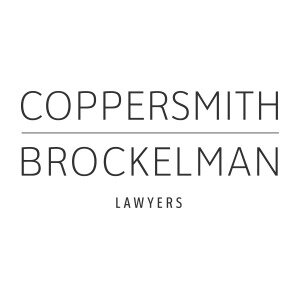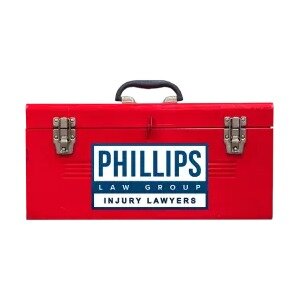Best Communications & Media Law Lawyers in Phoenix
Share your needs with us, get contacted by law firms.
Free. Takes 2 min.
List of the best lawyers in Phoenix, United States
About Communications & Media Law in Phoenix, United States
Communications & Media Law in Phoenix, United States governs the legal regulations and guidelines surrounding the use of various forms of media, communication, and technology. These laws aim to protect the rights, privacy, and interests of individuals and organizations involved in the communication and media industry.
Why You May Need a Lawyer
There are several situations where you may require legal assistance in Communications & Media Law:
- If you are facing defamation or libel claims related to published or broadcasted content.
- If you need to protect your intellectual property rights over creative works, trademarks, or patents.
- If you are dealing with licensing or regulatory issues in the field of communications and media.
- If you are involved in disputes over media contracts, such as licensing agreements, talent contracts, or distribution contracts.
- If you require guidance in navigating the complex regulations surrounding privacy, data protection, or cybersecurity in communications and media.
Local Laws Overview
In Phoenix, United States, there are several key aspects of local laws that are particularly relevant to Communications & Media Law:
- First Amendment Rights: The First Amendment of the United States Constitution guarantees freedom of speech and expression, which is crucial in the field of communications and media.
- Privacy Laws: Both federal and state laws protect individuals' privacy rights, including the collection, use, and disclosure of personal information by media organizations.
- Defamation Laws: Phoenix follows laws pertaining to defamation, which refers to false statements that harm a person's reputation, either through libel (written) or slander (spoken) communication.
- Intellectual Property Laws: These laws safeguard the rights of creators and innovators in publications, broadcasts, trademarks, copyrights, and patents.
- Advertising Regulations: There are specific regulations related to the content and practices of advertising, aiming to ensure fairness, accuracy, and transparency.
Frequently Asked Questions
Q: What constitutes defamation under Communications & Media Law?
A: Defamation generally involves false statements that harm someone's reputation. To be considered defamation, the statement must be false, communicated to a third party, and result in reputational damage or economic harm.
Q: How can I protect my intellectual property rights in communications and media?
A: To protect your intellectual property rights, consider registering them with the appropriate authorities, such as the United States Patent and Trademark Office or the U.S. Copyright Office. Consulting with an attorney familiar with intellectual property law can greatly assist in safeguarding your rights.
Q: What are the potential legal consequences of privacy breaches in the communications and media industry?
A: Privacy breaches can lead to legal consequences such as lawsuits, fines, and damage to the reputation of the responsible individual or organization. It is essential to ensure compliance with applicable privacy laws, including obtaining proper consent and implementing appropriate security measures for personal data.
Q: Do I need a lawyer to negotiate media contracts?
A: While it is possible to negotiate media contracts without legal representation, having a lawyer who specializes in Communications & Media Law can ensure that your interests are protected and that the contract terms are fair and favorable to you.
Q: Are there any restrictions on advertising content in Phoenix?
A: Yes, there are specific regulations and guidelines regarding advertising content in Phoenix. These regulations aim to prevent false or misleading advertising, protect consumers, and ensure fair competition in the marketplace. Consulting with an attorney can help you navigate these regulations and avoid potential legal issues.
Additional Resources
Here are some helpful resources, governmental bodies, and organizations related to Communications & Media Law in Phoenix:
- Arizona First Amendment Coalition: A nonprofit organization that promotes and defends First Amendment rights in Arizona. Visit their website at https://www.azfacoalition.org/.
- Arizona Bar Association: The State Bar of Arizona provides information and resources related to legal services, including those related to Communications & Media Law. Visit their website at https://www.azbar.org/.
- U.S. Copyright Office: The official website of the U.S. Copyright Office, where you can find information on copyright registration and guidelines. Visit their website at https://www.copyright.gov/.
- U.S. Patent and Trademark Office (USPTO): The USPTO website provides information on patents, trademarks, and intellectual property rights. Visit their website at https://www.uspto.gov/.
Next Steps
If you require legal assistance in Communications & Media Law in Phoenix, consider taking the following steps:
- Identify the specific area within Communications & Media Law where you need assistance.
- Research and shortlist attorneys in Phoenix who specialize in that area of law.
- Schedule initial consultations with the selected attorneys to discuss your case and assess their expertise.
- Choose an attorney who is experienced, trustworthy, and fits your needs.
- Proceed with engaging the selected attorney to guide you through your legal matter in Communications & Media Law.
Lawzana helps you find the best lawyers and law firms in Phoenix through a curated and pre-screened list of qualified legal professionals. Our platform offers rankings and detailed profiles of attorneys and law firms, allowing you to compare based on practice areas, including Communications & Media Law, experience, and client feedback.
Each profile includes a description of the firm's areas of practice, client reviews, team members and partners, year of establishment, spoken languages, office locations, contact information, social media presence, and any published articles or resources. Most firms on our platform speak English and are experienced in both local and international legal matters.
Get a quote from top-rated law firms in Phoenix, United States — quickly, securely, and without unnecessary hassle.
Disclaimer:
The information provided on this page is for general informational purposes only and does not constitute legal advice. While we strive to ensure the accuracy and relevance of the content, legal information may change over time, and interpretations of the law can vary. You should always consult with a qualified legal professional for advice specific to your situation.
We disclaim all liability for actions taken or not taken based on the content of this page. If you believe any information is incorrect or outdated, please contact us, and we will review and update it where appropriate.
















